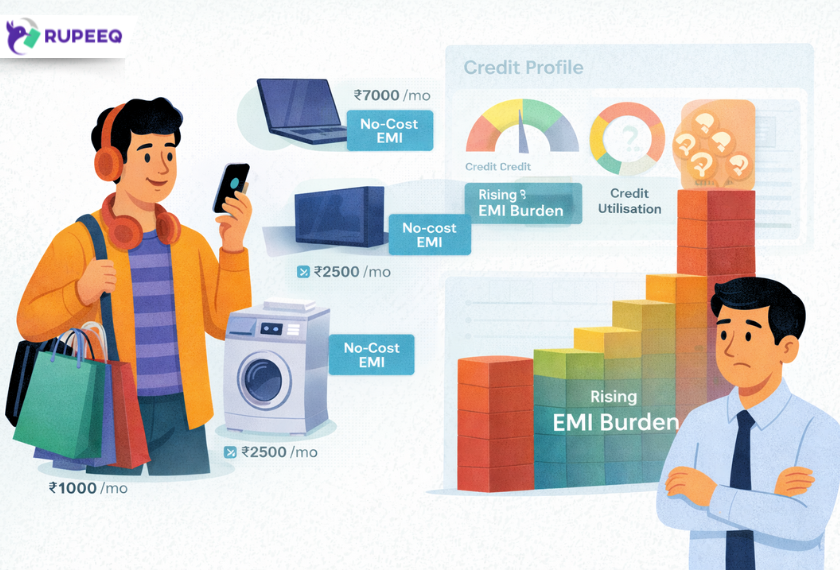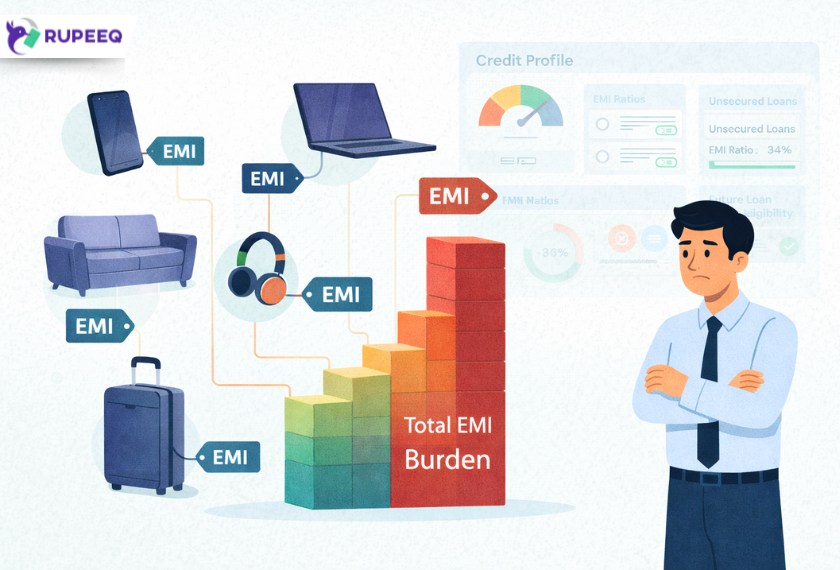Managing your credit score is a crucial part of personal finance, especially when you’re looking to apply for loans, credit cards, or even making significant financial decisions. Let’s dive into the key factors that affect your credit score and explore practical steps to improve it.
What Factors Affect Your Credit Score?
Understanding what influences your credit score can help you take the necessary steps to maintain or improve it. Here are the main components:
1. Payment History (35% of Your Score)
- Impact: Late payments, missed payments, or loan defaults severely impact your credit score. Even a single missed payment can remain on your credit report for years.
- Example: If you forget to pay your credit card bill by the due date, your score may drop, and future lenders may see you as a risk.
2. Credit Utilization Ratio (30% of Your Score)
- Impact: This ratio is calculated by dividing your total credit card balances by your total credit limits. A high utilization ratio indicates that you’re heavily reliant on credit, which may negatively affect your score.
- Example: If you have a total credit limit of ₹1,00,000 and your outstanding balance is ₹70,000, your utilization ratio is 70%, which is considered high.
RupeeQ Tip: Keep your credit utilization below 30%. If your limit is ₹1,00,000, try to maintain a balance below ₹30,000.
3. Length of Credit History (15% of Your Score)
- Impact: The longer your credit history, the better it is for your score. Lenders prefer borrowers who have a track record of responsible credit use.
- Example: If you’ve had a credit card for 10 years and always paid on time, it will positively influence your credit score.
RupeeQ Tip: Keep your oldest credit accounts open, even if you don’t use them frequently, to maintain a long credit history.
4. Credit Mix (10% of Your Score)
- Impact: A diverse mix of credit accounts, such as credit cards, home loans, and personal loans, can positively impact your score. If you’re planning to avail a loan, consider the types of credit you already have. A good mix shows lenders that you can handle various credit responsibilities.
- Example: Having a credit card and a car loan that are both well-managed may boost your score more than having only one type of credit.
5. New Credit Inquiries (10% of Your Score)
- Impact: Every time you apply for credit, a hard inquiry is made, which may slightly lower your credit score. Too many inquiries in a short period can be seen as a sign of financial distress.
- Example: If you apply for multiple credit cards within a month, your score may drop because of numerous hard inquiries.
RupeeQ Tip: Use RupeeQ ACE to check your credit score without impacting it, as it performs a soft inquiry that won’t affect your score.
How to Improve Your Credit Score
Improving your credit score doesn’t happen overnight, but consistent and strategic efforts can yield positive results. Here’s what you can do:
1. Pay Your Bills on Time
- Why It Matters: As payment history is the most significant factor, paying your bills on time is non-negotiable. If you’re struggling to pay off debt, speak with your lenders about setting up a payment plan that works for you.
- Action Plan: Set calendar reminders or enroll in autopay for your bills. Focus on clearing past-due accounts immediately.
2. Reduce Your Credit Utilization
- Why It Matters: A lower credit utilization ratio demonstrates responsible credit management.
- Action Plan: Aim to pay off your credit card balances in full each month. If that’s not possible, pay down as much as you can.
RupeeQ Tip: Request a credit limit increase from your card issuer if your financial situation allows. A higher credit limit can lower your utilization ratio, provided you don’t increase your spending.
3. Keep Your Old Credit Accounts Open
- Why It Matters: Older credit accounts contribute to a longer credit history. Avoid closing old accounts, especially if they have a good payment history, as it may negatively affect your score.
- Action Plan: Even if you don’t use an old credit card often, keep it open and make a small purchase occasionally to keep the account active.
4. Avoid Applying for New Credit Frequently
- Why It Matters: Multiple hard inquiries in a short time can lower your score.
- Action Plan: Apply for new credit only when necessary and be strategic about the timing.
RupeeQ Tip: Use RupeeQ ACE to monitor your credit health before applying for new credit, ensuring you are in a strong position to get approved.
5. Monitor Your Credit Report Regularly
- Why It Matters: Errors on your credit report, such as incorrect account balances or late payments, can unfairly lower your score. Use RupeeQ to perform a free credit score check and identify areas that need improvement. Remember, using RupeeQ ACE doesn’t impact your score.
- Action Plan: Check your credit report at least once a year and dispute any inaccuracies.
6. Diversify Your Credit Portfolio
- Why It Matters: A good credit mix shows that you can handle different types of credit responsibly.
- Action Plan: If you only have credit cards, consider taking out a small personal loan or a secured loan to improve your credit mix. Be cautious when diversifying credit. Only take on additional credit if you can manage the repayments comfortably.
Final Thoughts
Improving your credit score is about consistent and responsible credit management. From paying your bills on time to managing your credit utilization ratio and monitoring your credit report, small changes can make a big difference.
RupeeQ ACE is a great tool for tracking your credit score without worrying about any negative impact. Whether you’re just starting to build credit or looking to improve a low score, understanding and acting on these factors will set you on the path to financial success.







